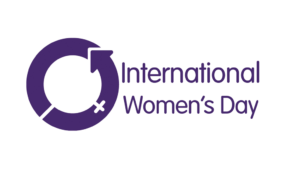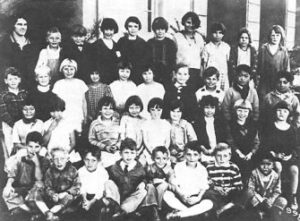
March 7, 1965: In the Selma to Montgomery March, around 600 civil rights marchers walk to Selma, Alabama to Montgomery—the state’s capital—in protest of black voter suppression. Local police block and brutally attack them. After successfully fighting in court for their right to march, Martin Luther King and other civil rights leaders lead two more marches and finally reach Montgomery on March 25.

International Women’s Day (8 March) is a global day celebrating the economic, political and social achievements of women past, present and future. In some places like China, Russia, Vietnam and Bulgaria, International Women’s Day is a national holiday.
Suffragettes campaigned for women’s right to vote. The word ‘Suffragette’ is derived from the word “suffrage” meaning the right to vote. International Women’s Day honours the work of the Suffragettes, celebrates women’s success, and reminds of inequities still to be redressed.
The first International Women’s Day event was run in 1911. Annually on 8 March, thousands of events are held throughout the world to inspire women and celebrate achievements. A global web of rich and diverse local activity connects women from all around the world ranging from political rallies, business conferences, government activities and networking events through to local women’s craft markets, theatric performances, fashion parades and more.
“The story of women’s struggle for equality belongs to no single feminist nor to any one organization but to the collective efforts of all who care about human rights” Gloria Steinem
Learn more about International Women’s Day

After years of happiness research, one thing has proved fundamental – the importance of our connections with other people.
But modern societies are built as if the opposite was true. We are surrounded by people, yet we feel genuinely connected to almost none of them. The effects are devastating.
Social isolation is as potent a cause of early death as smoking; and the epidemic of loneliness is twice as deadly as obesity.
We could change this in a day if we all reached out and made at least one positive connection. For the International Day of Happiness, that’s exactly what we’re going to do.
The International Day of Happiness (“Happiness Day”) was founded by United Nations adviser Jayme Illien on June 28, 2012, when all 193 member states of the United Nations General Assembly unanimously adopted UN resolution 66/281:
“The General Assembly,[…] Conscious that the pursuit of happiness is a fundamental human goal,[…] Recognizing also the need for a more inclusive, equitable and balanced approach to economic growth that promotes sustainable development, poverty eradication, happiness and the well-being of all peoples, Decides to proclaim 20 March the International Day of Happiness, Invites all Member States, organizations of the United Nations system and other international and regional organizations, as well as civil society, including non-governmental organizations and individuals, to observe the International Day of Happiness in an appropriate manner, including through education and public awareness-raising activities[…]”
International Day of Happiness is celebrated annually on March 20.

In 2001, the United Nations declared March 21st to be the International Day for the Elimination of Racial Discrimination. The Durban Declaration and Programme of Action adopted at the World Conference against Racism, Racial Discrimination, Xenophobia and Related Intolerance on 8 September 2001, underlines the key role that political leaders and political parties can and ought to play in combating racism, racial discrimination, xenophobia and related intolerance.
At the World Conference and subsequent Review Conference, States also recognized that promoting greater respect and trust among different groups within society must be a shared but differentiated responsibility of government institutions, political leaders, grassroots organizations and citizens.
Learn more at the United Nations website.

Mar 27 is International Social-Emotional Learning (SEL) Day. SEL changes lives—studies show that SEL improves well-being and academic outcomes, builds positive school climate, and provides children with the necessary skills to excel in today’s workforce. Learn more at https://casel.org/ & https://selday.org/

In July of 1930, in Lemon Grove, California, members of the school board addressed concerns of overcrowding and “sanitary and moral” issues resulting from the mingling of Mexican and Anglo students by sending the students of Mexican descent to a separate school. The parents of these children, most of whom were US citizens, had not been informed of this change. As soon as they became aware, they refused to comply, and sought redress in law.
On March 30, 1931, the case (Alvarez v. the Board of Trustees of the Lemon Grove School District) was decided in favor of the plaintiffs, ending the attempt at segregation. The arguments and issues introduced in the case would surface again, most notably in the Mendez vs Westminster case in 1943.
(Pictured to the Left) Lemon Grove Grammar School, c. 1928. Robert Alvarez, plaintiff in “The Lemon Grove Incident,” is in the third row at far left.

Cesar Chavez Day is a federal commemorative holiday in the U.S. by proclamation of President Obama in 2014. César Chávez Day is observed on March 31 each year. It celebrates the birthday of César Estrada Chávez and it serves as a tribute to his commitment to social justice and respect for human dignity. It is an official state holiday in six states: Arizona, California, Michigan, New Mexico, Utah, and Wisconsin.

April 4, 1968: Civil Rights icon, Martin Luther King, Jr. is assassinated on the balcony of his hotel room in Memphis, Tennessee. James Earl Ray is convicted of the murder in 1969

